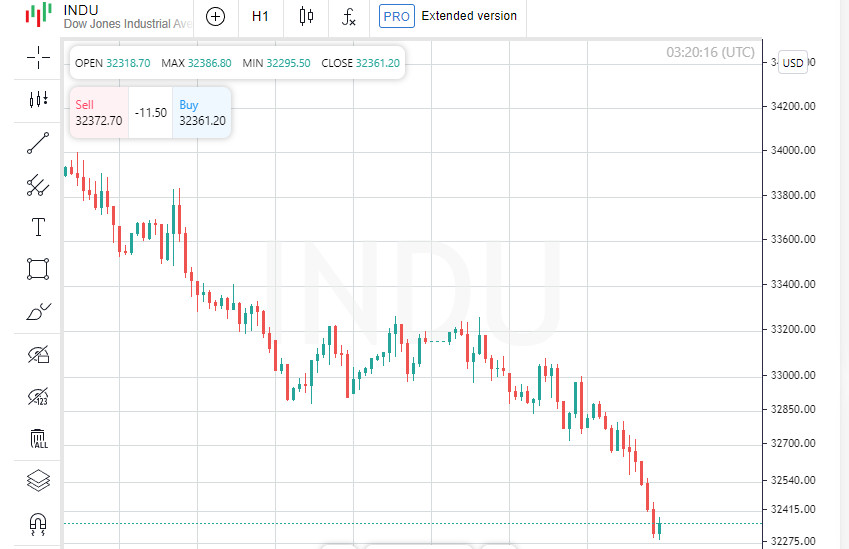
The U.S. Commerce Department report indicates a rise in core inflation, primarily due to increased housing costs. However, with the anticipated spending cuts in early 2024, most experts expect the Federal Reserve will not raise interest rates, although certain risks remain.
Jeffrey Roach, Chief Economist at LPL Financial, asserts that the current data will likely not influence the Fed's outlook on the future pace of inflation.
In figures, the Dow Jones index fell by 1.12%, the S&P 500 lost 0.48%, while Nasdaq added 0.38%. Corporate news highlights include a nearly 7% rise in Amazon shares after strong sales and Intel, which reported a growing PC market, boosting its shares by more than 9%. However, Chevron shares dropped by 6.7% due to reduced profits in the third quarter.
The global MSCI stock index decreased by 0.22%, although it showed growth after news of a high US economic growth rate in the third quarter and the decision of the European Central Bank to keep interest rates.
The European stock market faced pressure on Friday, with French blue chips particularly impacted after Sanofi revised its forecasts until 2025. Shares in the Asia-Pacific region, meanwhile, recovered by 1% after falling to an 11-month low on Thursday.
10-year U.S. Treasury bonds, a key global borrowing cost indicator, remained virtually unchanged at 4.837%, despite a short-term rise to 5% earlier this week.
Strategists from Bank of America emphasized that even considering strong US economic indicators in the third quarter, a slowdown in the fourth quarter might indicate a more "gentle" economic correction.
On the global stage, investors are cautiously positioned towards disinflation, as noted in Bank of America's commentary. "Hopes for a smooth deflation remain, but caution is advised," the note reads.
In the run-up to next week, the market is closely watching the Federal Reserve's moves. Although rates are expected to remain between 5.25-5.5%, Federal Reserve Chairman Jay Powell expressed the possibility of further hikes due to a robust economy and tight labor market.
Meanwhile, the European Central Bank on Thursday confirmed its deposit rate at 4%, but bank president Christine Lagarde hinted at potential changes in monetary policy in the future.
Oil prices have risen due to growing concerns about escalating conflict in the Middle East, which could lead to supply shortages.
The American oil benchmark closed at $85.15, up by 2.33%. At the same time, the Brent benchmark increased by 2.49%, reaching a mark of $90.12 per barrel.
Concurrently, gold prices also rose, gaining 1.1%, standing at $2,005.78 per ounce.
Currency market situation:
The euro maintained its position, stabilizing at the 1.056 dollar mark, although it declined by 14% over the past three months.
Thanks to the strengthening of the US economy and rate hikes, the dollar index has increased by 5% over the past three months. No significant changes were noted at the end of the trading session.
The situation with the Japanese yen is becoming increasingly interesting. The currency set a new yearly low, reaching 150.77 against the dollar. At the close of trading, the yen's exchange rate stood at 149.59 against the dollar. This decline brings the yen closer to its 30-year low of 151.94, prompting Japanese authorities to take action to stabilize the situation.
 English
English 
 Русский
Русский Bahasa Indonesia
Bahasa Indonesia Bahasa Malay
Bahasa Malay ไทย
ไทย Español
Español Deutsch
Deutsch Български
Български Français
Français Tiếng Việt
Tiếng Việt 中文
中文 বাংলা
বাংলা हिन्दी
हिन्दी Čeština
Čeština Українська
Українська Română
Română

